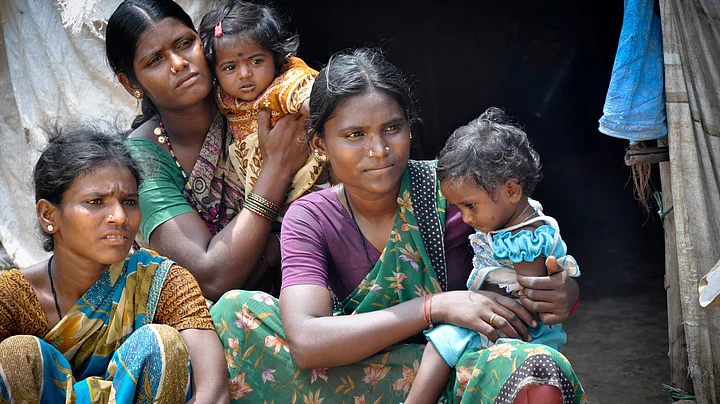Two Indias co-exist in our nation today.
One that a lot of us reading this blog live in, and call India. The other, one which we know of but have often not heard or seen, which I will now refer to as Bharat.
A recent trip I took gave me the chance to explore this Bharat; unheard, untouched and unexplored by most. People in ‘India’ are largely unaware of the problems faced by Bharat. This is possibly because Bharat is less accessible – like a distant cousin, we know of him but have never met him.
Bharat is poor, or at least not as well off as its richer cousin, India. The government has launched endless programs for its upliftment. This year’s budget was also focused on the development of Bharat. This is not exactly new; every year there is a new scheme – free education, subsidies, skills training, and numerous others. But where have these schemes gotten us? What is the status of Bharat now?
Let’s look at the idea of free education. The government wants everyone
to be educated. This is definitely a good idea and no one would
disagree. In my discussion with the people in Bharat, they said they did
want to send their kids to study, but faced two key problems. First, If
they send their kids to study, they will not have enough money in hand
to spend on their food and daily necessities. Second, there is no good
school in the neighbourhood for them to send their children to – private
schools are shackled by government regulation focused on input norms,
and government schools lack accountability and quality checks.
Has the government (with all its good intentions), been able to create the NEED for education in rural India, like Nokia or Samsung have created the NEED for cell phones? Cell phone companies have managed to get into the pockets of the poorest of the poor, while the Government is still struggling to achieve an educated nation.
This article is perhaps a reality check, an exploration of that which we may have overlooked. My attempt is to debunk the role of central planning, and to show who really needs capitalism and entrepreneurship.
While
interviewing a group of tribal woman in a village close to Harda in
Madhya Pradesh, I learned that there was a private school three
kilometres away that charged a fee of Rs 80 per month. I asked whether
it was a good school, and they said that it was, but that they could not
send children there. Why not? Because they couldn’t spare that much of
their income for education.
And yet, 18 of those 25 women acknowledged that they had a TV with a paid DTH connection.
My question is simple: If the poor have a TV and they spend Rs 250-300 per month on keeping their connection live, why is it that they cannot spend Rs 80 per month on educating their children?
Though I didn’t get an answer from them on this issue, my conclusion is simple:
The government has not made Bharat dependent on them for TV and entertainment. However, they have made them dependent on government provision of education.
Government is a fairly new concept. We were not always reliant on this entity. We lived in communities and cared for each other. Then we appointed government as a leader to facilitate co-existence and settle disputes. But somehow, we relinquished our independence and surrendered ourselves to the leader. It has become an ever-growing entity. And as its power grew, the benefits shrank. Now government does things for votes, to win elections, and not to facilitate citizens’ lives.
In the last few years, there has been a rising awareness of
poverty, and governments all over the world have launched programs and
projects to help eradicate it. The Government of India has raised money from the nation and
abroad and launched endless programs to ensure that we do not remain a
third world country.
NGOs and individuals have come out to help the country and government – some have done well, but unfortunately, others haven’t had much impact. Eradicating poverty and providing education to all is such
an emotional thing that everyone wants to contribute, but
hardly anyone has taken the time to work out the details. Our good
intentions will almost always have bad outcomes if long-term
consequences are not considered.
All the people of Bharat
need is a sustainable model to work or to start their own business – be
it a small store or a big one, be it E-Rickshaws or cab services.
People earn money when they feel safe from goons and criminals, when
they trust in the Rule of Law and good governance.
If one really wants to empower
the poor, they must be allowed the opportunity to earn and help their
communities fight poverty together – don’t cripple their
enterprise by dumping aid on them, even with the best of intentions.
Poverty can be effectively eradicated only when the poor start contributing to growth through active involvement. Implementation of poverty-alleviation programs should therefore be based on approaches that involve the poor themselves in the process.
(Sadaf Hussain works in the development sector, is interested in politics, economics and human behaviour, and supports logic and the free market. Good at cooking, taking pictures and sarcasm. You can follow him at @hussainsadaf1)
